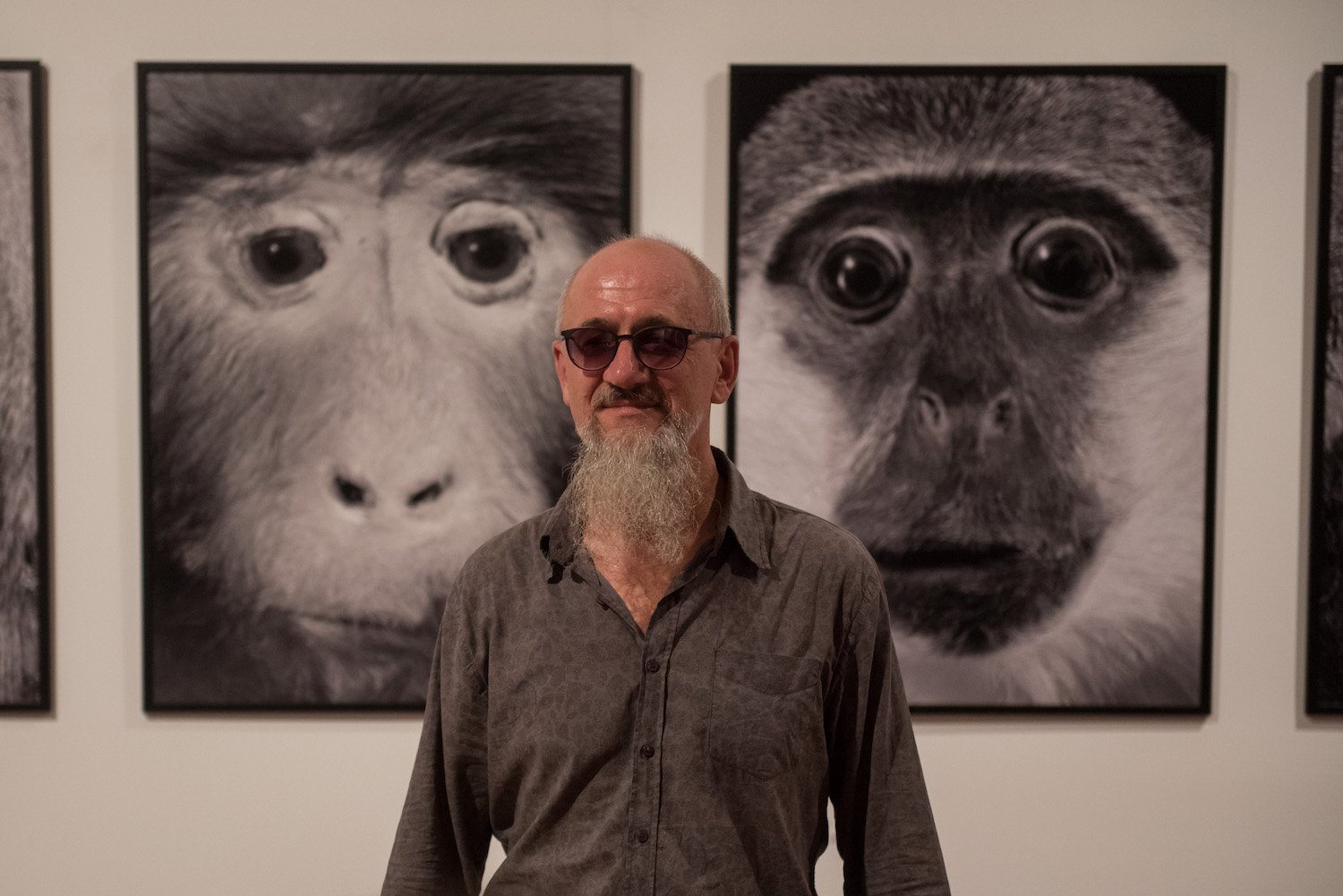
Russian artist Oleg Kulik, who is famous for performing in the nude and, occasionally, as a dog, is facing criminal charges for showing a sculpture that was deemed unpatriotic at last month’s Art Moscow fair.
Kulik’s 2018 sculpture The Big Mother is a statue of a large flesh-colored nude woman raising a sword with smaller figures tugging on ropes tied to her body.
Some pro-Kremlin critics, including writer Zakhar Prilepin viewed the work as a parody of a Soviet-era monument titled The Motherland Calls, by Yevgeny Vuchetich, according to the Moscow Times.
Senator Alexei Sushkov said the installation is “an insult to the symbol of Victory in the Great Patriotic War.” He was backed by State Duma deputy Alexander Khinshtein, while Elena Yampolskaya, head of the State Duma Culture Committee, reportedly sent a letter to the Prosecutor Generals’s office requesting an investigation.
Now, the Investigative Committee of Russia has opened a “rehabilitation of Nazism” case against Kulik, according to reports in The Moscow Times and the art magazine Artgid. If he’s found guilty, the artist reportedly faces a fine of up to three million rubles, forced labor for up to three years, or imprisonment for up to three years.
The committee did not immediately respond to a request for comment. The gallery that showed the work at the fair, Moscow’s Frolov Gallery, appears to be closed. Ovcharenko, another gallery that has worked with Kulik, did not immediately respond to an inquiry from Artnet News.
Some reports say that Kulik considers the work a reflection of his separation from his wife.
His dealer Vladimir Frolov told Russian news outlet Izvestia that the work has nothing to do with politics. “As Oleg Kulik explained, the sculpture symbolizes the conflict between a man and a woman,” he said. “Modern women do not want to lead a traditional lifestyle and want parity with men, which is why there is such a dramatic struggle between them. This is eternal love and hatred around which the world revolves.”